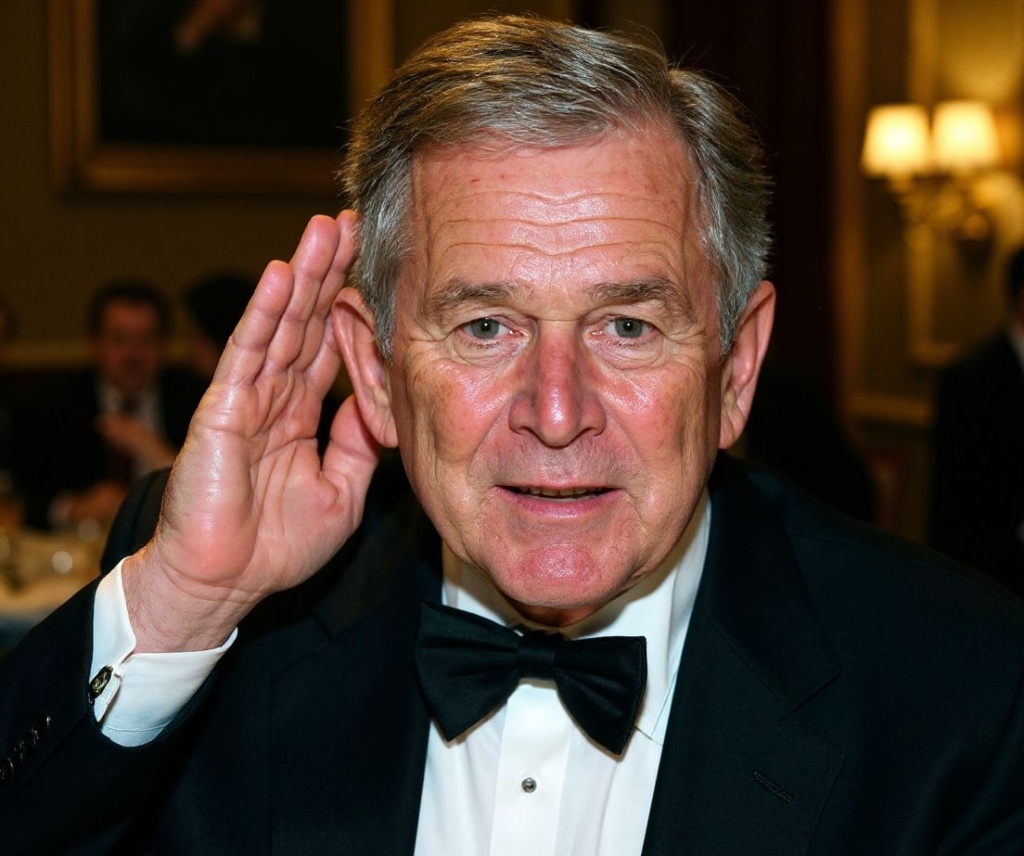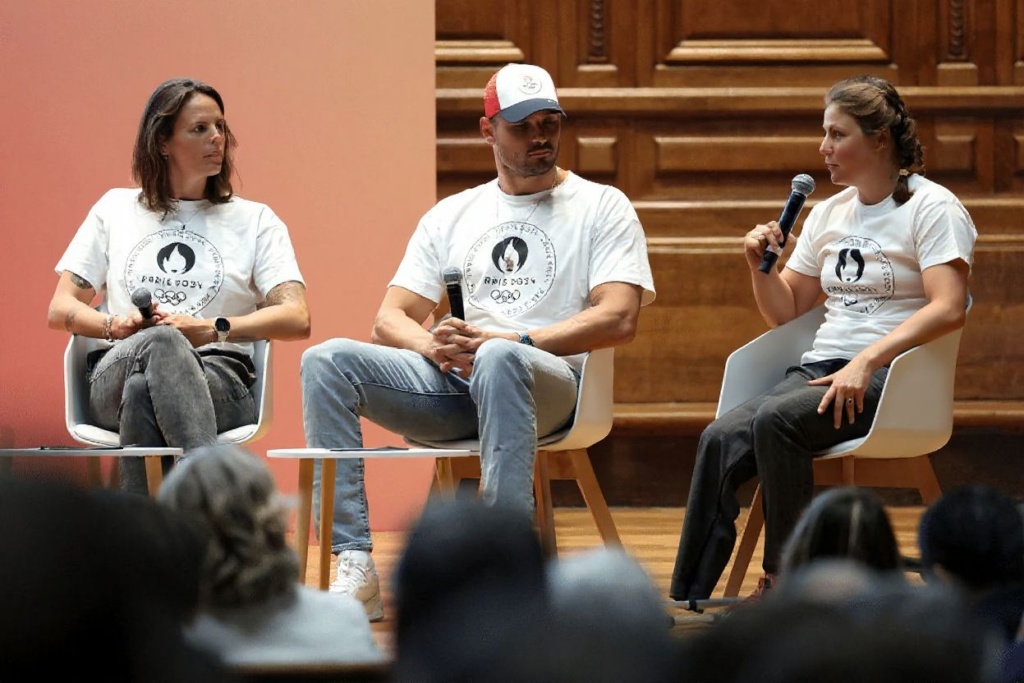
Communication has peaked as the top in-demand skill in 2024, according to Forbes.
Time and time again, we’ve said it – effective communication skills will lead to career growth, good salaries, and a broad professional network in today’s digital age.
It’s not just face-to-face communication that matters anymore. Employers worldwide are looking for those skilled in communicating and collaborating across channels, platforms, and even country borders.
The statistics speak for themselves:
- 70% of the workforce would be more productive with effective communication processes implemented at work.
- Effective team communication and collaboration increase employee retention by 4.5 times.
- 43% of on-site employees state that due to poor communication, they lose trust in leadership.
While these factors may not immediately lead to a new role or salary jump, they open doors for them.
But why is it so important to learn effective communication skills even through digital platforms? After all, there’s tech like ChatGPT and Google Gemini; they can help you draft anything from an email to your manager, or your entire final year thesis – and they’re constantly evolving.
Let’s discuss.

Talk shows sometimes say a whole load of nothing.
The secrets behind effective communication skills
Let’s get one thing straight. Communicating well doesn’t mean communicating a lot.
If all effective communication skills revolved around just talking, a lot of people would be fit to become talk show hosts or podcast creators.
But in reality, you may be surprised to find that the most effective speakers aren’t a very talkative bunch. But maybe you already knew that, especially if you can tell how some hosts or podcasts aren’t all that interesting despite talking for hours on end.
The reason is simple – they’ve mastered the art of saying more, with less. True mastery lies in message quality, not quantity.
Effective communication skills involve more than just saying the right thing, too. It’s all about listening, speaking, observing and empathising. Even body language plays a part – if you’re saying one thing but your demeanor gives off a different vibe, you’re bound to confuse the other party.
“It’s not the words you use; it’s the connection you make that resonates with others,” says Trever Noah in an interview with Fresh Air’s Terry Gross about the power of language.
Former host of the immensely popular Comedy Central’s “The Daily Show”, Noah knows a thing or two about effective communication skills – after all, he grew the show’s following to over 31 million on social media.
Rather than just rambling on and making humorous quips ala Marvel-style, Noah makes an effort to connect with his audience and retain their attention. He doesn’t shove information down your throat – rather, he shares what he understands about it, opening up opportunities for the audience to think about the topic at hand and form their own perspectives.
And if there’s another person who has effective communication skills – and is arguably known for doing this the best – it’s former US President Barack Obama. He’s known for his rhetorical skills and ability to paint pictures with words so that others not only see what he sees but feel it too.
Similar to Noah, Obama sounds authentic.
As a sports fan, he is not hesitant when voicing his opinion about the need for a college football playoff. As a family man, he is not shy about expressing his love for his wife and daughters. And as a president, he’s confident in addressing his people.
It conveys the image of one guy who, in many respects, is just like us — and, as such, knows the trials and tribulations of everyday life.
But of course, not everyone can be – or wants to be – an Obama. That’s where we come in. Here are other effective communication skills useful for school, work, and throughout your daily life.
 An iconic Obama pause caught on camera.
An iconic Obama pause caught on camera.
6 effective communication skills you should master
Sprinkling pauses
While not everyone has to address a nation like Obama, he still has a significant trick he uses for communicating. The former president is known for his pregnant pauses – he sprinkles them through his speech, slowing down gradually to look at his audience before resuming his point.
Slowing down is a known technique to convey confidence. When Obama does it, it shows he’s aware of your attention and is intelligently thinking through what he says.
Whatever your goal, mastering the art of pausing during conversations can go a long way in forming a good impression, creating positive speaking experiences, and calming our anxiety when we can’t find our words.
Rather than fumbling and filling your speech with “um”, “y’know”, “like”, “well” and so on, pausing to think can make for more effective, intelligent communication. If the situation allows, add a slow walk around the podium for extra dramatic effect. If you want to be really dramatic, take a sip of water.
Done right, no one will be able to tell you’re actually thinking of what to say next.
 Whether you’re a president or a student, it’s always good to listen to what others have to say.
Whether you’re a president or a student, it’s always good to listen to what others have to say.
Active listening
One of the most effective communication skills involves no speaking at all: active listening.
This skill involves hearing words and truly comprehending the message, empathising with the speaker, and responding appropriately.
Contrary to the belief that speaking more is the path to becoming a good communicator, active listening demonstrates that the listener often holds the key.
By paying full attention to the speaker, you can extract the core of their message, understand their needs and concerns, and respond thoughtfully.
For example, if you’re a student, you should avoid dominating discussions with excessive speech. Instead, focus on what your professors or peers say and how they speak. If you want to clarify something, ask follow-up questions or rephrase what they’ve said to confirm that you understood them correctly.
The same goes in a work setting. When working on projects together, listen to what your colleagues have to say. Be fully present, and avoid interruptions or distractions such as phone notifications, or clicking your pen incessantly. Don’t be that person.
Another way to improve your active listening skills is by paying attention to other people’s facial expressions, body language and tone of voice. Return what they’re saying with supportive, non-verbal cues; nod, smile, and eye contact are all great active listening cues.
 Choose your words carefully — only use those that are necessary.
Choose your words carefully — only use those that are necessary.
Having concise expression
Have you noticed that the more you talk, the greater the chances of misunderstanding or losing your audience’s interest?
Or perhaps you’ve seen movies with this trope; a computer expert will say something extremely complex in technobabble, and the protagonist will say something like “In English, please?”
Moral of the story – the more you try to explain something, the chances are that it starts to sound convoluted. You end up confusing others and losing their interest.
According to a study from Microsoft Corp, the average human attention span has fallen from 12 seconds in the year 2000 to eight seconds today. Unsurprising, as platforms like TikTok have encouraged short-form content, effectively reducing attention span from young ages.
Therefore, it’s essential to focus on delivering your message as directly as possible. Use simple language and minimal filler words to ensure everyone not only pays attention to you, but also understands what you’re saying.
The same goes for writing. Instead of rambling on in essays, you should aim to convey your ideas succinctly. If you read it aloud and it sounds like a mouthful, then don’t write it – it’s as simple as that!
Everyone appreciates those who can get the point across and showcase their understanding of the subject matter without the need for excessive verbosity.
 Sundar Pichai, the CEO of Alphabet Inc, is one of the best public speakers due to his confidence, ability to command attention, and his vocal tone and pace.
Sundar Pichai, the CEO of Alphabet Inc, is one of the best public speakers due to his confidence, ability to command attention, and his vocal tone and pace.
Empathy and emotional intelligence
An effective communication skill that requires little to no speaking is having empathy and emotional intelligence. This skill revolves around understanding the emotions and feelings behind the words of others.
Empathy, a crucial component of emotional intelligence, allows you to connect with people on a deeper level and build stronger relationships.
This communication skill holds significance in both group and individual interactions. In both cases, you attempt to effectively read and translate other people’s emotions and select an appropriate response.
For example, if someone is expressing anger or frustration, empathy can help you acknowledge and diffuse their emotions. It means a lot to someone when their negative emotions are validated and seen.
At the same time, understanding when someone is feeling positive and enthusiastic can help you get support for your ideas and projects.
No matter at what age, anyone can greatly benefit from practising empathy in their communication with their peers and superiors. Understanding the emotions of others in group projects, addressing concerns, and connecting with others on a personal level are great ways to level up your communication skills.
 Sometimes even when you say nothing at all, your body speaks a thousand words.
Sometimes even when you say nothing at all, your body speaks a thousand words.
Non-verbal communication
It’s established by now that not all communication is spoken or written. Non-verbal cues, such as body language, facial expressions, and tone of voice, are significant in conveying your message.
For example, nodding, maintaining eye contact, and using appropriate facial expressions indicate that you are engaged in the conversation and empathetic toward the speaker. This enhances your ability to connect with others without speaking more words.
These cues often speak louder than words and can impact how your message is perceived. It’s crucial to align your non-verbal communication with your verbal message to avoid mixed signals.
It’s a useful skill to apply in various contexts. When engaging in discussions, group projects, or even on a date, you should be aware of your body language and how it complements or contradicts your spoken words.
Plus, non-verbal cues can help you gauge the reactions and emotions of your audience, allowing you to adjust your communication accordingly.
But this goes both ways. You should be aware that even if you’re saying something positive, having negative body language such as folded arms, knees turned away, or basically scowling will definitely come off as contradictory to a happy statement.
A simple example; don’t insist that everything is fine when your partner clearly knows you’re not happy with them. Just tell them why you’re pissed off, for heaven’s sake.
 By practising adaptability, individuals can navigate various communication scenarios with greater ease and convey their messages more efficiently and effectively.
By practising adaptability, individuals can navigate various communication scenarios with greater ease and convey their messages more efficiently and effectively.
Adaptability
Being an effective communicator means adapting to your audience and the context of the communication.
Not every situation or person requires the same communication style; understanding this is essential for success. Switching between formal and informal communication, adjusting your tone, and choosing appropriate words is a sign of a skilled communicator.
For example, a student shouldn’t speak to their dean in the same way they would speak to their roommate. We can only imagine the horrors if you start your academic emails off with “What’s poppin’ fam?” or something similar.
The same goes for a work setting. You may sign off your emails with “Working hard, hardly working” to your work bestie as a joke, but sending that to your manager would be highly questionable, unless they’re open to a laugh or two.
It’s important to understand that you must adapt to different social scenarios. It doesn’t mean that you have to imitate the other person’s communication style, but it does involve switching in the direction of their preference while still maintaining your own identity.
At the end of the day, your ability to adapt will influence how others perceive you. Raise your adaptability level and trust and credibility go up; lower your adaptability level and trust and credibility go down. So learn to communicate with other people the way they want and need to be communicated with.
Disclaimer: This article was last updated on October 22, 2024.










